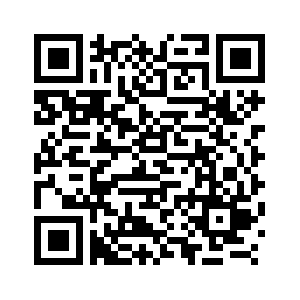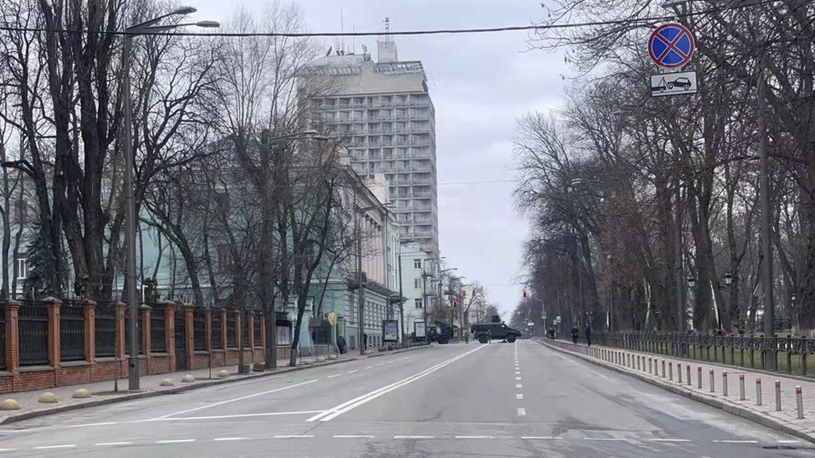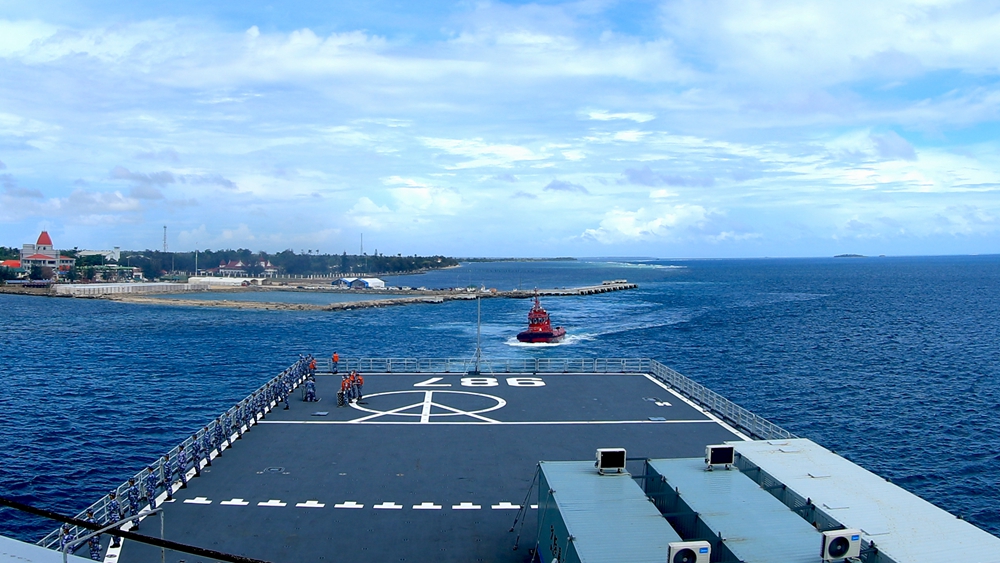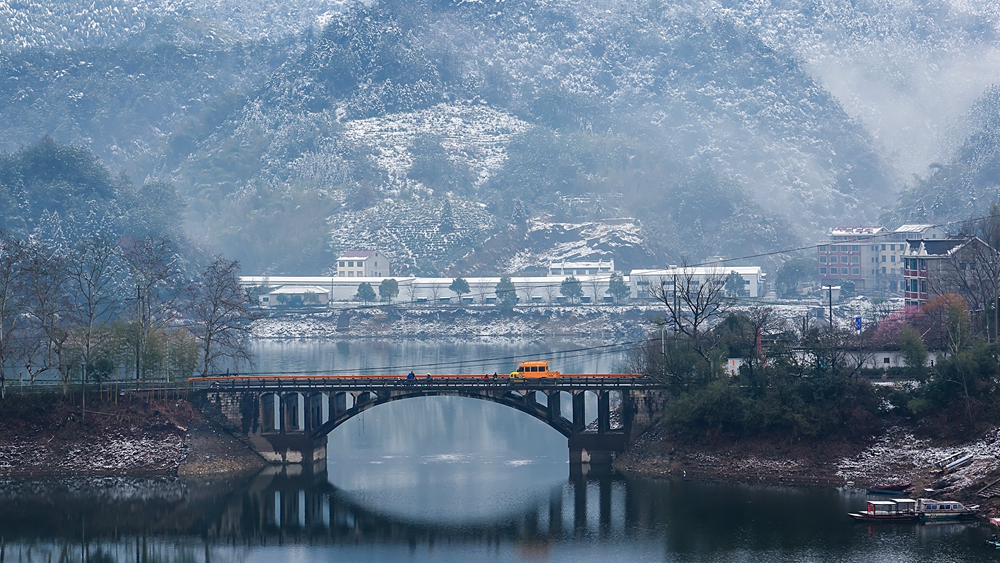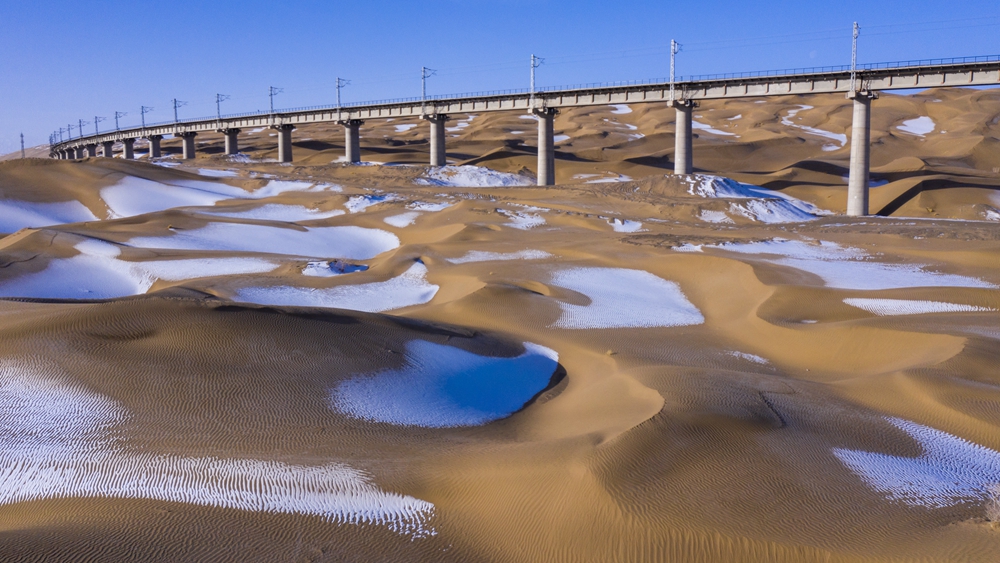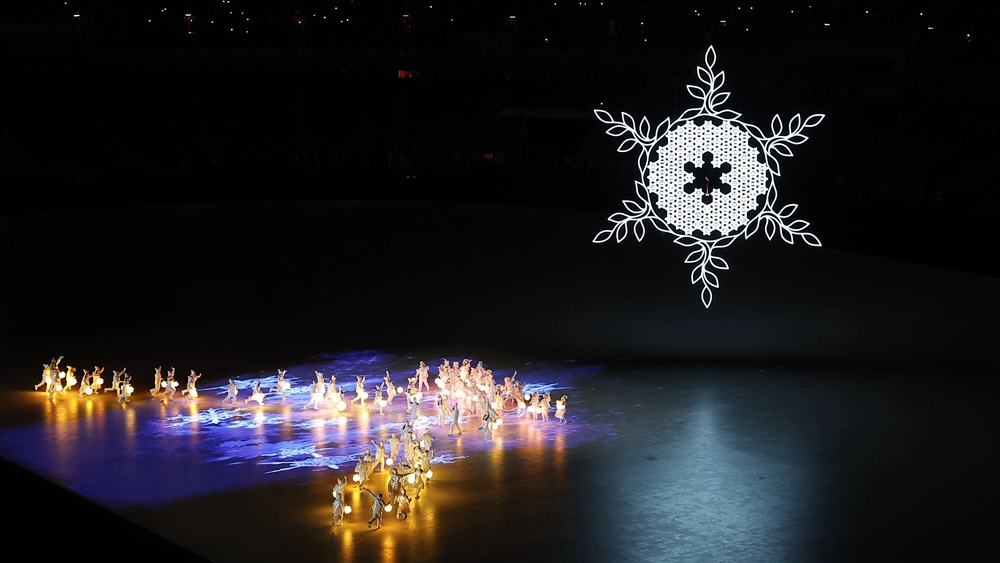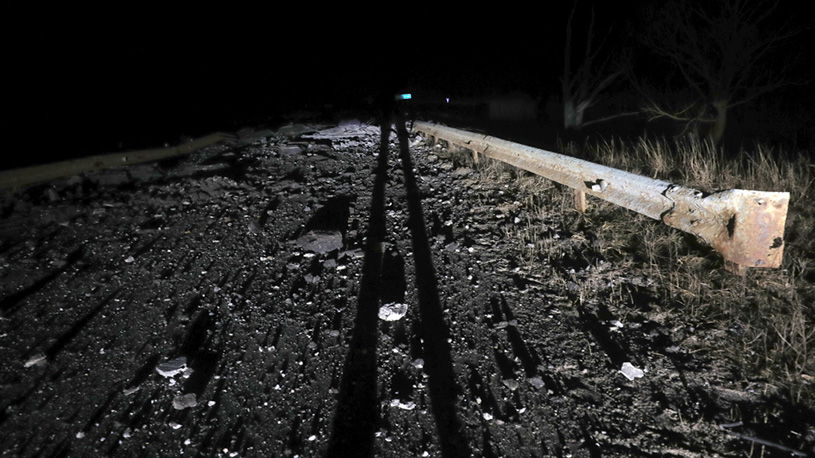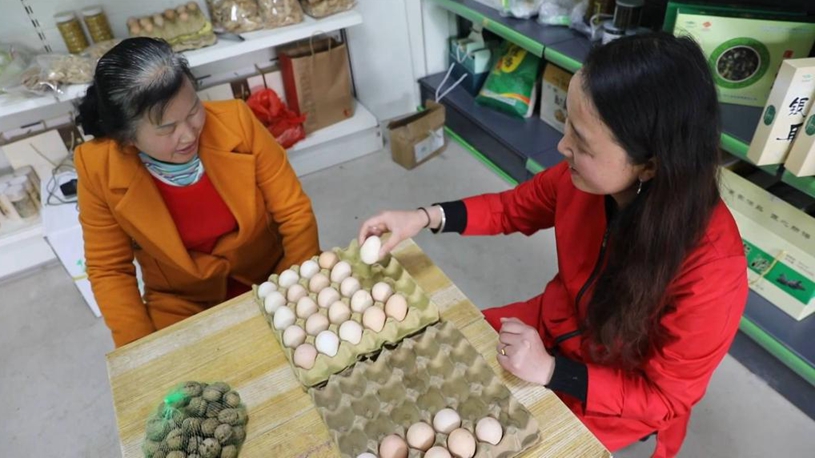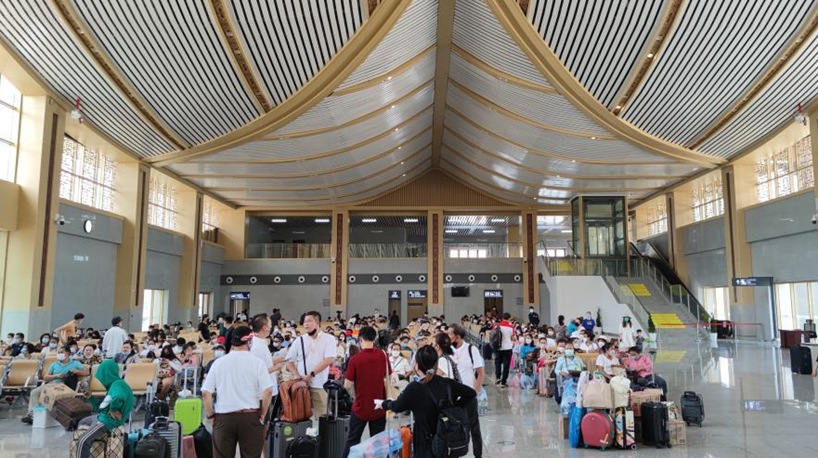* As military conflicts between Russia and Ukraine continue to intensify, both sides have expressed willingness to talk with each other to solve the crisis through dialogue.
* Some Western countries have announced sanctions against Putin, Lavrov, and some other senior Russian officials over the ongoing military operation in Ukraine, while Kremlin spokesman Dmitry Peskov noted that the sanctions were not painful for any representative of Russia's top leadership.
* United Nations officials and global leaders are voicing concerns over the issue and calling for a peaceful solution facing the military conflicts and dispute of sanctions.
BEIJING, Feb. 26 (Xinhua) -- As military conflicts between Russia and Ukraine continue to intensify, both sides have expressed willingness to talk with each other to solve the crisis through dialogue.
Despite the sanctions imposed by some Western countries, there are still members of the international community calling for a peaceful solution to the ongoing problematic issue.
NEGOTIATION POSSIBILITY EMERGES
The Russian armed forces have disabled 211 military infrastructure facilities in Ukraine since the operation began on early Thursday, Russian Defense Ministry spokesman Igor Konashenkov said on Friday night, up from 118 facilities reported in his morning briefing.
Konashenkov also announced on the same day that Russian forces have captured the Hostomel airfield in northwestern Kiev and blockaded the Ukrainian capital from the west, and will continue to perform tasks in the areas of other cities.
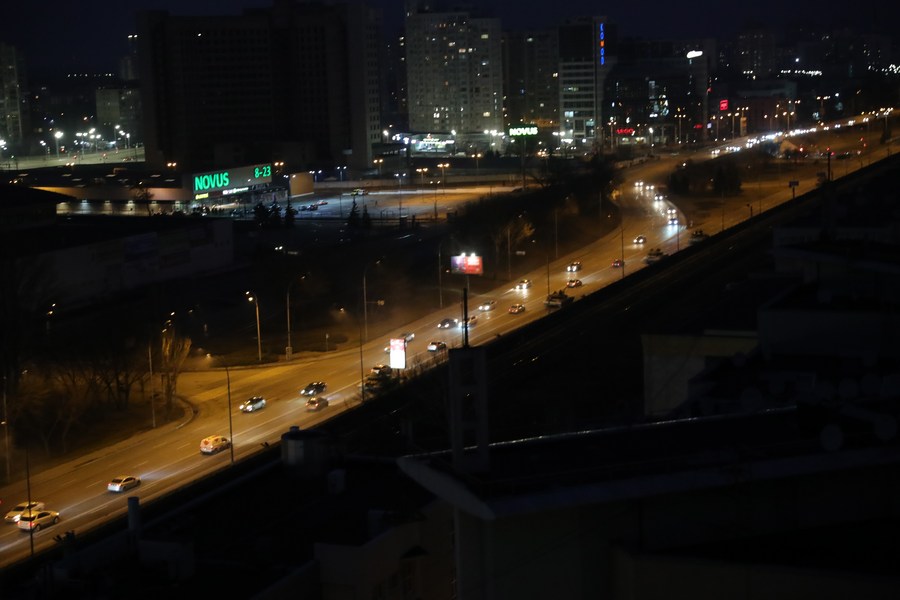
Photo taken on Feb. 24, 2022 shows the street view of Kiev, capital of Ukraine. (Xinhua/Li Dongxu)
Russia has also taken full control of the Chernobyl nuclear power plant and military units of the two sides there have reached an agreement on the protection of the nuclear facilities and the sarcophagus.
"Fighting is going on all over Ukraine. Let's sit down at the negotiating table," Ukrainian President Volodymyr Zelensky was quoted by the Interfax-Ukraine news agency as saying on Friday, calling for talks to end the intense conflict.
Later Friday, Kremlin spokesman Dmitry Peskov confirmed that Russian President Vladimir Putin is ready to send a delegation to the Belarusian capital of Minsk for negotiations with Ukraine at the level of representatives of the defense ministry, the foreign ministry and the presidential administration.
Russian Foreign Minister Sergei Lavrov told a briefing that his country has no plan to occupy Ukraine and Moscow is ready to hold negotiations straight after the Ukrainian forces "lay down their arms."
The two sides are currently discussing a date and place of negotiations, according to Zelensky's press secretary Sergii Nykyforov, noting that "Ukraine was and remains ready to talk about a ceasefire and about peace. This is our permanent position."
"The sooner negotiations begin, the more chances there will be to resume normal life," he said.
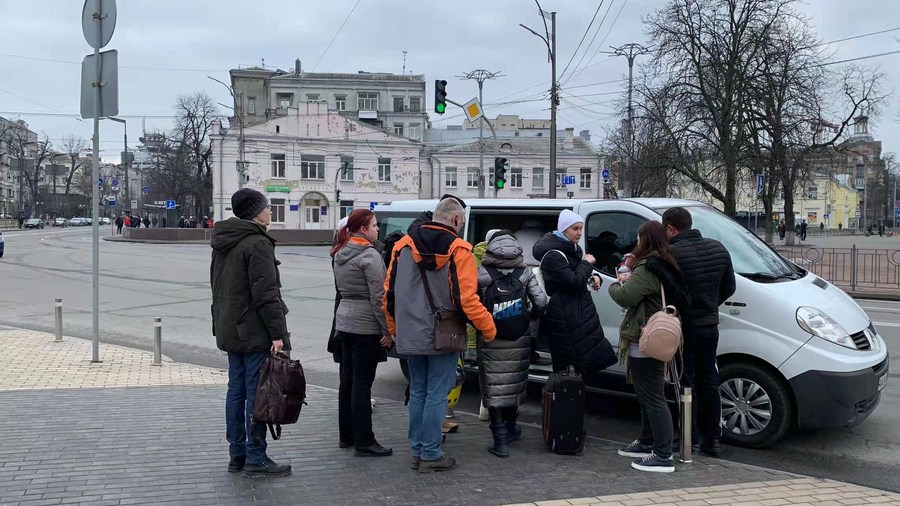
People get on a vehicle to leave the city in Kiev, capital of Ukraine, Feb. 25, 2022. (Xinhua/Lu Jinbo)
INTERNATIONAL EFFORTS
Some Western countries have announced sanctions against Putin, Lavrov, and some other senior Russian officials over the ongoing military operation in Ukraine, while Peskov noted that the sanctions were not painful for any representative of Russia's top leadership.
The Kremlin spokesman also told reporters that "retaliatory measures will follow," while the details have not been confirmed yet.
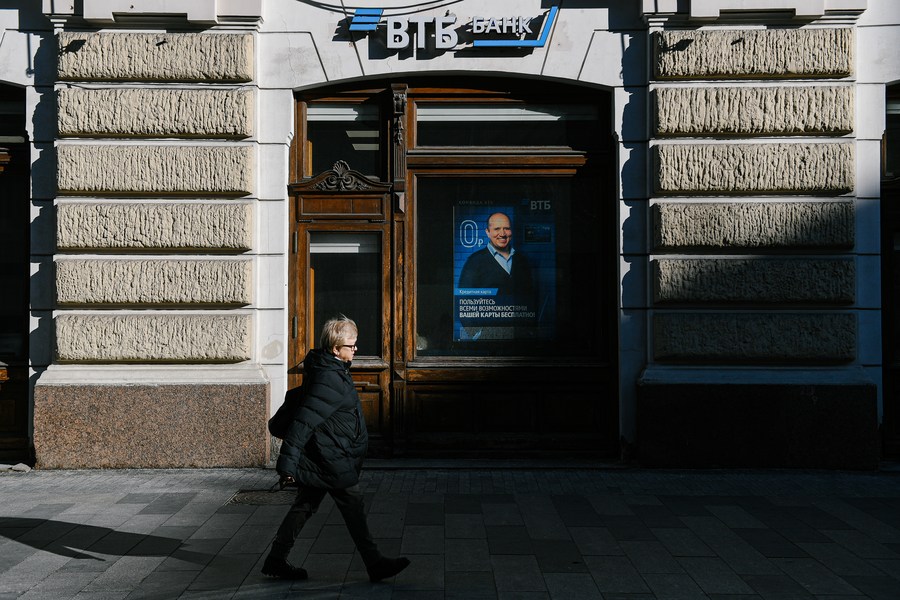
A woman passes by an office of VTB bank in Moscow, Russia, Feb. 25, 2022. As the Ukraine crisis is arousing widespread concerns, the United States, the European Union (EU), and Britain have announced sanctions against Russia for its latest actions. (Xinhua/Evgeny Sinitsyn)
United Nations (UN) officials and global leaders are voicing concerns over the issue and calling for a peaceful solution facing the military conflicts and dispute of sanctions.
UN Secretary-General Antonio Guterres said in a statement that the situation "is not irreversible," appealing to all parties concerned for protecting civilians and upholding international humanitarian and human rights law.
Guterres also appointed Amin Awad, former official in the UN High Commissioner for Refugees with over 30 years of experience in field of humanitarian affairs, as UN Crisis Coordinator for Ukraine.
Abdulla Shahid, president of the 76th session of the UN General Assembly (UNGA), on Thursday called for an immediate ceasefire in Ukraine and peaceful means to settle disputes.
"I call for an immediate ceasefire, deescalation of tensions and a firm return to diplomacy and dialogue," said the UNGA president in a statement.
Underscoring that the UN Charter is based on the principle of sovereign equality, Shahid called on all member states to settle their international disputes by peaceful means.
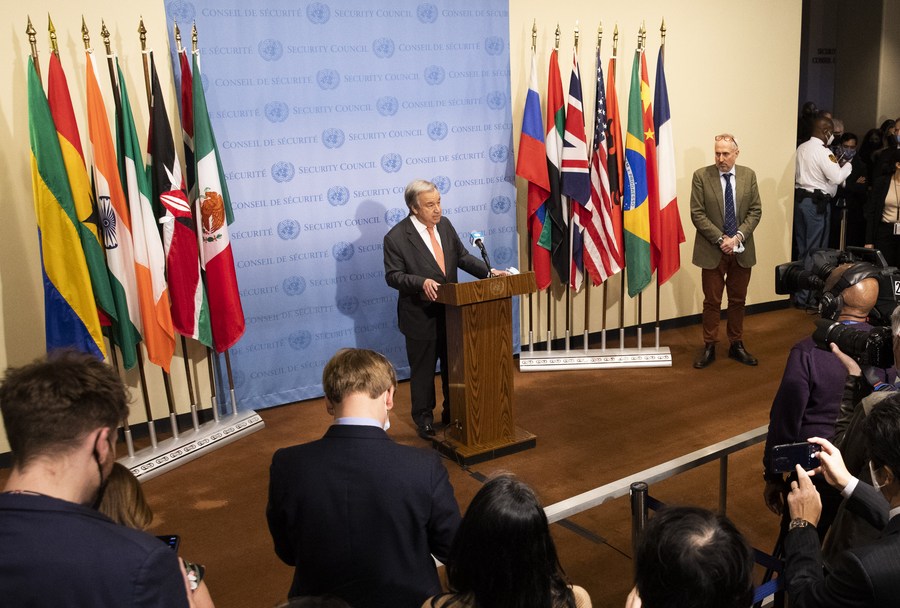
United Nations (UN) Secretary-General Antonio Guterres speaks to the press at the UN headquarters in New York, Feb. 25, 2022. (Xinhua/Wang Ying)
Chinese State Councilor and Foreign Minister Wang Yi said on Friday that China firmly stands for respecting and safeguarding the sovereignty and territorial integrity of all countries and earnestly abiding by the purposes and principles of the UN Charter, during his phone talks with British Foreign Secretary Liz Truss, the European Union's High Representative for Foreign Affairs and Security Policy Josep Borrell as well as Emmanuel Bonne, diplomatic counselor to French President Emmanuel Macron.
"The present situation is something we do not want to see," said Wang, stressing that China supports and encourages all diplomatic efforts conducive to the peaceful settlement of the Ukrainian crisis.
Cairo urges finding a political settlement to the crisis in a manner that preserves international security and stability, the Egyptian Foreign Ministry said in a statement on Thursday, affirming the importance of upholding "dialogue and diplomatic solutions."
During his meeting with Putin in Moscow on Thursday, visiting Pakistani Prime Minister Imran Khan said that conflict was not in anyone's interest, underlining Pakistan's belief that disputes should be settled through dialogue and diplomacy, according to a statement released by Khan's office.
Austrian President Alexander Van der Bellen said on Thursday that "everything must now be done to avoid further escalation and to protect lives."
Emphasizing that "peace comes first," Van der Bellen said the way to the negotiating table must be open to all sides. (Video reporters: Meng Jing, Lu Jinbo, Tan Yixiao and Hu Yousong; video editors: Zhao Yuchao, Luo Hui, Li Qin and Lin Lin)■
